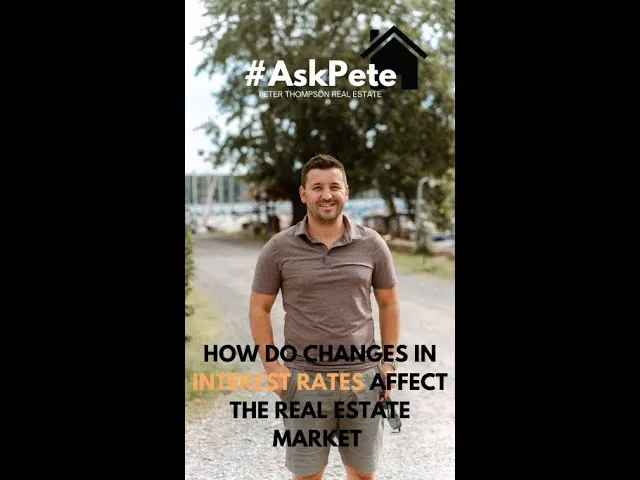
Sep 28, 2022
How do changes in interest rates affect the real estate market?
A hike in interest rates usually means that affordability for buyers goes down, which might affects prices. But there’s a upside for buyers as well.

A hike in interest rates usually means that affordability for buyers goes down, which might affects prices. But there’s a upside for buyers as well.
We all saw in 2021 how the market exploded: Interest rates and inventory were at an all-time low, mixed with high building costs and demand. All of these elements combined created a perfect storm for bidding wars on homes, and clearly making it a hot seller’s market.


Now that things have cooled down, and the Bank of Canada has significantly increased interest rates on mortgages, buyers have had to tighten their pockets and reduce their purchasing power. In a trickle effect, sellers have had to adjust and consider lowering their selling price to balance the market.
There’s always an ebb and flow in real estate. There’s never a perfect formula, or a perfect time, but staying informed is key, and adapting to the trends. The easiest way to remember is this:
– Lower interest rates = Higher purchasing power
– Higher interest rates = Lower purchasing power
Today, we’re discussing how changes in interest rates affect the real estate market. While this is certainly a hot topic right now, it’s always important to know how interest rates changing affect your situation as a homebuyer.
When the Bank of Canada increases its rates, this eventually trickles down and affects the interest rates for mortgages. So when the mortgage rates increase, this essentially means what the bank is willing to lend you goes down.
Let’s say Johnny homebuyer gets a 4% rate on a $400,000 mortgage, and his monthly payments will be approximately $2,104. But if the rate went up to 5%, and his monthly payments would be $2,326. So an increase of 1% represents $220 more per month for Johnny.
What this means is that as interest rates increase, affordability decreases. In this example, Johnny homebuyer, lenders can only afford to offer Johnny a $355,000 mortgage based on his qualifications. What this means is that a 1% increase in the mortgage rate decreases Johnny’s purchasing power by $45,000, leaving Johnny with a much smaller budget than before.
As a result of these changes, buyers having less purchasing power in general. Which means that sellers might have to consider selling their home for a little bit less.
While we’d love to be able to time the market perfectly and know when to sell and when to buy, that’s just not realistic. So it’s important is to keep an eye on the trends, which will help you make a decision.
Applied to our current situation, it’s not all doom and gloom–there’s actually some really good news here.
This is #AskPete. If you have any real estate questions, feel free to send them and I will get you the answers. Or stay up to date on the latest tips for real estate buyers and sellers by clicking the YouTube button below: